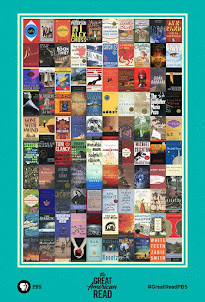 |
| I'll miss you, G. |
Congratulations, cast, crew, and creators of Spartacus, GOTA, your prequel was every bit as enjoyable as Blood and Sand, and the finale one of the best things all winter. I won't spoil anything about the ending, but really, I didn't see that one coming at all. Swoon, Gannicus (Dustin Clare). You're no Andy Whitfield, but you're something else, and you done good, son.
Oenomaus and Crixus? Looking forward to seeing you in 2012. And for the record, I loved the scenes in the finale when Lucretia first mentions shaving his beard and cutting his hair, then moments later just before the final battle, "CRIXUS! YOU'RE FIRST!" and we get a delicious look at the results . . . (!) Nicely done.
 2. The Oscars.
2. The Oscars. As many of you probably already know, nothing pains me more than having to be a Debby Downer, (!) but was last night's award ceremony some sort of experiment in an Intro to Writing Awards Show class or something? Jeeeeesus Christ (as my old man used to say), would it kill you to hire an actual writer for something this major, or maybe some *experienced emcees?* I think Anne Hathaway was actually really trying quite hard, so, you know, good job there, but she and James Franco were horribly dull, not funny, and annoying all at once. Who wrote those intros? They were awful. If I were an emcee I would have complained. "We are fortunate to be able to breathe the same air as our next guest?" (! ! ! !) I doubt you'd come across anything that cheesy in a Stephanie Meyer novel! Those vignettes (opening segment where James and Anne are inserted into each Best Picture nominee, the auto-tune shit? The final Best Picture montage)---I've seen student films that had more talent and know-how.
As many of you probably already know, nothing pains me more than having to be a Debby Downer, (!) but was last night's award ceremony some sort of experiment in an Intro to Writing Awards Show class or something? Jeeeeesus Christ (as my old man used to say), would it kill you to hire an actual writer for something this major, or maybe some *experienced emcees?* I think Anne Hathaway was actually really trying quite hard, so, you know, good job there, but she and James Franco were horribly dull, not funny, and annoying all at once. Who wrote those intros? They were awful. If I were an emcee I would have complained. "We are fortunate to be able to breathe the same air as our next guest?" (! ! ! !) I doubt you'd come across anything that cheesy in a Stephanie Meyer novel! Those vignettes (opening segment where James and Anne are inserted into each Best Picture nominee, the auto-tune shit? The final Best Picture montage)---I've seen student films that had more talent and know-how.What an enormous boner-kill. But congratulations to the winners, not only for nabbing the awards but for surviving that despicable program. Boo.
3. Oscar Fun Contest Winner: Elyssa Castillo, who correctly predicted *all* winners! (My husband also predicted all winners, but Elyssa submitted her answers first, so the prize is hers). Nice Job! I'm thinking of another contest for Mafia March, coming up, so stay tuned!!!!










































































